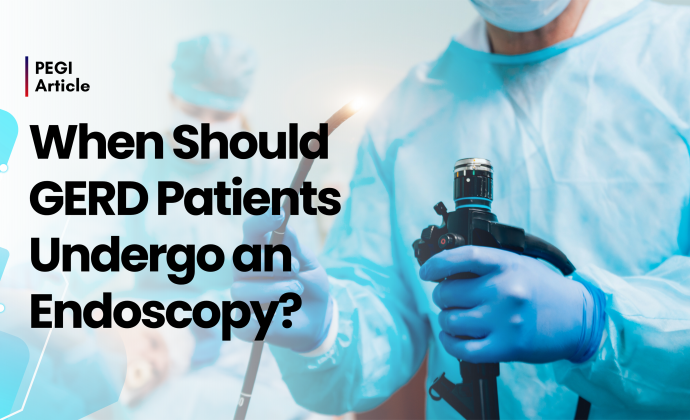
When Should GERD Patients Undergo an Endoscopy?
Gastroesophageal reflux disease (GERD) is a condition in which stomach acid flows back into the esophagus. The most common symptoms include heartburn (a burning sensation in the chest), regurgitation of acid or food into the mouth, and discomfort in the upper abdomen. Most GERD cases improve with lifestyle modifications and medications, especially proton pump inhibitors (PPIs). However, in certain situations, an endoscopy may be required to confirm the diagnosis and detect possible complications.
Endoscopy is not always necessary for every GERD patient. It is mainly recommended for patients with the following conditions:
- Presence of alarm (red flag) symptoms, such as:
- Difficulty or pain when swallowing (dysphagia, odynophagia)
- Unexplained weight loss
- Anemia (e.g., due to gastrointestinal bleeding)
- Recurrent vomiting or vomiting blood
- Black or bloody stools
- New-onset symptoms in patients over 50 years of age
- Lack of improvement despite optimal medical therapy.
- Patients at high risk of Barrett’s esophagus or esophageal cancer, such as those with chronic GERD combined with risk factors like obesity, smoking history, or a family history of esophageal cancer.
- Suspicion of complications such as esophageal stricture, severe esophagitis, or precancerous/cancerous lesions.
In younger patients with typical GERD symptoms and no alarm features, endoscopy is usually not required, and initial management with medications and lifestyle changes is often sufficient.
Endoscopy plays an important role in evaluating the esophagus in GERD patients, but it is not automatically needed for everyone. It is particularly useful when alarm symptoms are present, symptoms do not improve with medication, or risk factors for esophageal cancer exist. With timely endoscopy, serious complications can be detected earlier and treated more effectively.
This article has been reviewed by Rabbinu Rangga Pribadi, MD
Image Source: Getty Images
References:
Desai, Madhav et.al. American Society for Gastrointestinal Endoscopy guideline on the diagnosis and management of GERD: summary and recommendations, Gastrointestinal Endoscopy, Volume 101, Issue 2, 2025, Pages 267-284.
Mayo Clinic. Gastroesophageal reflux disease (GERD) – Symptoms & Causes [internet]. Mayo Clinic; 2025 Apr 23 [cited 2025 oct 2]. Available from: https://www.mayoclinic.org/diseases-conditions/gerd/symptoms-causes/syc-20361940





 Users Today : 710
Users Today : 710 Total views : 2080375
Total views : 2080375 Who's Online : 4
Who's Online : 4